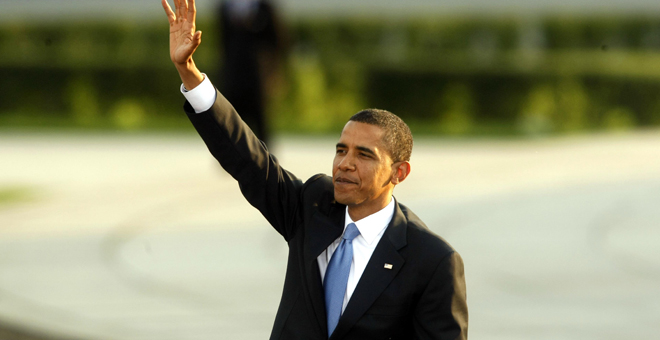One of Barack Obama’s core selling points when he first sought the White House was his commitment to restoring America’s international standing from the lows it reached in the twilight of George W. Bush’s presidency. Candidate Obama promised a new tone in U.S. foreign policy and the world responded enthusiastically. Now as the president heads into his re-election campaign at home, he can point to many foreign policy successes, but the sort of adulation that greeted Obama’s entry onto the world stage has — quite expectedly — given way to more sober assessments around the globe.
So where does the president stand abroad?
Latin America
President Obama’s attendance of the 2012 Summit of the Americas was by most accounts a headache. While the Secret Service prostitution scandal received the most attention in the United States, the meeting itself ended in acrimony, with two Latin American leaders leaving the summit early over policy disagreements with the United States. The summit reflected falling approval ratings for U.S. leadership among Latin American citizens. A recently released Gallup US leadership poll shows approval of the United States currently at an average of 40% in the region. The number was well above 50% when President Obama took office.
Europe
President Obama has retained more popularity in Europe. A survey released by the Transatlantic Trends Council in September 2011, a low point for Obama’s domestic numbers showed that 75 percent of those questioned in European Union countries viewed Obama positively. More recently the same Gallup poll shows shows a dip in approval of US leadership over the past year. Interestingly Obama’s popularity has frustrated some progressive Europeans who believe that Europeans have overlooked his inability to close down Guantanamo Bay and accomplish other progressive campaign goals.
Middle East
Barack Obama’s 2009 Cairo speech to the Muslim world electrified many observers. His address acknowledged U.S. mistakes and committed to a new relationship between the United States and the Islamic world build on a foundation of mutual respect. Three years later with what many in the Middle East perceived as an uneven response to the Arab Spring and the continuity of strong US support for Israel, that enthusiasm has waned. One recent poll from the region showed that the United States ranked along side Israel as the greatest threats to world peace.
Asia/Pacific and South Asia
President Obama, not shy in highlighting his cosmopolitan identity, referred to himself as the first “first Pacific President” in 2009 and vowed to improve relations with Asia. Obama stressed trade and containing the nuclear threat from North Korea. The same Gallup poll shows steady approval for the United States through Obama’s presidency, with a 39% median approval in 2011 “higher than any rating during the Bush administration.” There is a substantial difference between north and south Asia, with the administration facing a far more skeptical public in the south of the continent.
Africa
Gallup’s U.S. leadership survey showed the greatest fall in support for American leadership in Africa. Africa consistently gives the United States high overall ratings, and the recent decline in approval from countries on the continent still leaves the U.S with a median approval rating of 74%. Strikingly this number is now the same as when George W. Bush held the presidency. President Obama’s initial massive popularity in Africa was first demonstrated in a 2006 visit to Kenya and continued into 2009 trip to Ghana. Recently the Obama administration caught criticism from African opinion leaders for passing over the Nigerian economist Ngozi Okonjo-Iweala to head the World Bank. Despite this criticism Obama and the U.S. under his leadership remain widely popular in Africa.









